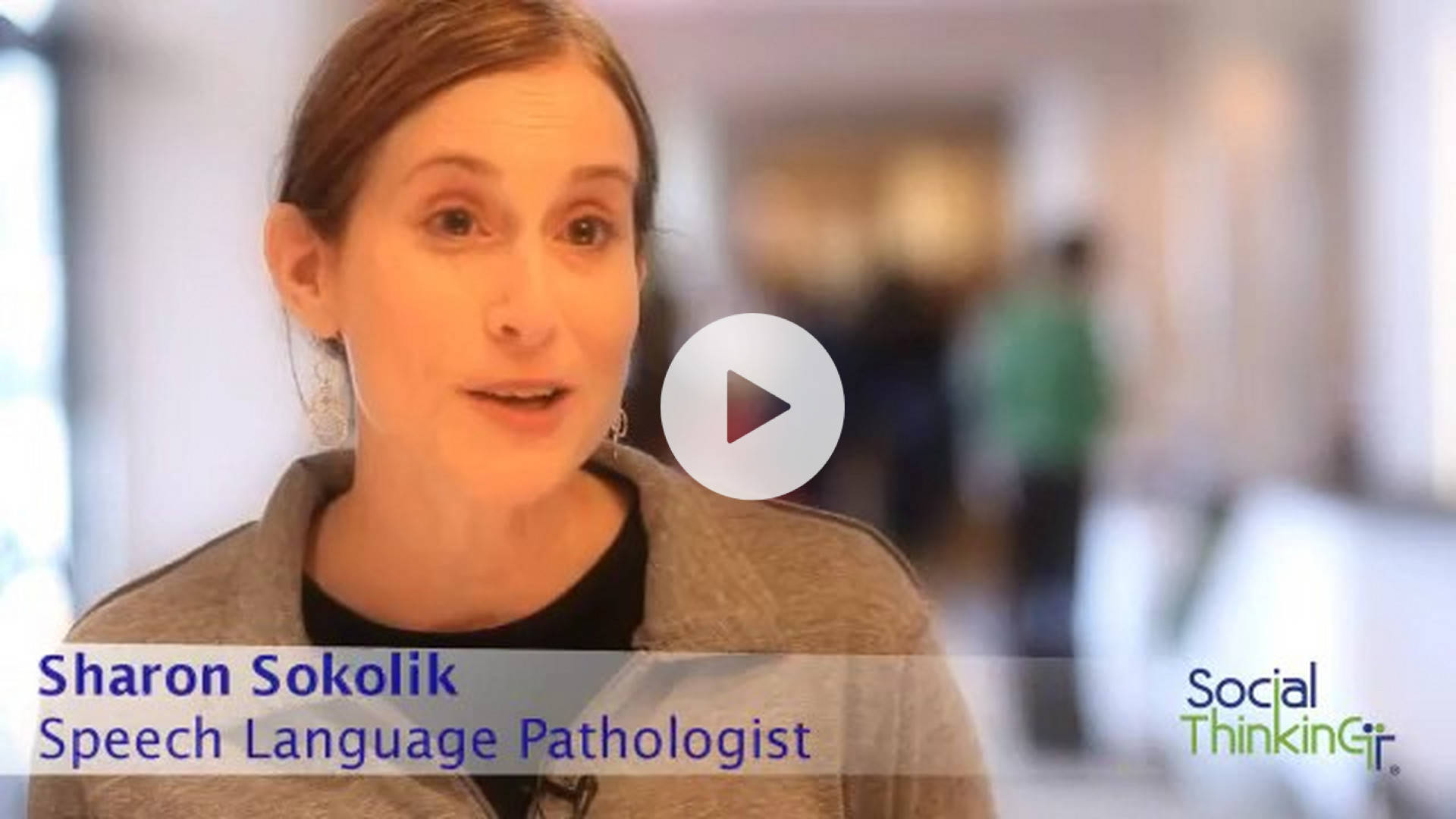Implementing Social Thinking Concepts and Vocabulary: A Day to Develop Team Creativity
Both teachers and learners need practical ways to think about the social world. In this hands-on course, you will learn 15+ practical teaching strategies using Social Thinking Vocabulary and visual frameworks. The activities from this course focus on making abstract social information more concrete through lessons to teach social learners how to socially attend, interpret, problem solve, and respond to social information. Activities will also focus on strategies for teaching emotional understanding, theory of mind/perspective taking, and executive functioning to help learners meet their own social goals. Work in pairs or table teams to develop lesson plans for the home, clinic, or classroom the very next day. People love this hands-on, engaging course!

- Description
- What You Will Learn
- Schedule
- Who Should Attend
Using the 4 Steps of Communication and the Social Thinking–Social Competency Model as a backdrop, attendees will learn about the role of social attention, interpretation, problem solving, and social responses as part of navigating the social world. We will explore how to teach and learn the evidence base for core teaching frameworks and a handful of unique and practical strategies based on the Social Thinking Vocabulary. Attendees will learn how one’s social attention to what is happening and the people in the situation can encourage understanding of the unspoken expectations for that social context. We also describe ways to teach interpreting and responding by making smart guesses and the relationship to social emotional learning.
Attendees will explore specific treatment strategies for how our bodies establish physical presence in a group (body in the group) and how we think with our eyes to gain awareness of the social environment, whether interacting or simply sharing space. Throughout the course, we emphasize how to make abstract concepts more concrete through clinical examples.
We’ll investigate how to teach conversational language by deconstructing the components, including how people share an imagination in the process. Attendees will also take a deeper look at how thoughts, feelings, actions, and reactions are linked to social situations, the people present, and what is happening through the framework called Social Behavior Mapping. Attendees will also learn strategies for dealing with the size of the problem, flexible thinking, and self-regulation as we consider how to think more deeply about social concepts required for navigation and regulation in school, home, and online learning environments.
Content Disclosure: This course does not teach about any other methodologies or programs aside from the Social Thinking Methodology.
Upcoming Conferences
- Describe an activity for teaching toward the first step of the Four Steps of Communication (e.g., thinking about others).
- Describe an activity that uses visual supports for teaching individuals the three language components of a conversation: add-a-thought, ask questions, and supportive comments.
- Explain what is meant by the Social Emotional Chain Reaction and give one example of how to teach it.
Upcoming Conferences
This agenda may change without notice.
| 7:30-8:30 | Use social competencies to problem solve how to sign in, find a seat, and enjoy a cup of coffee or tea while getting to know fellow attendees.. |
| 8:30-10:15 | Delve into teaching components of the Four Steps of Communication and treatment strategies and activities related to thinking, physical presence, and how we use our eyes to gather social information. Explore strategies and vocabulary for teaching about the social world.
|
| 10:15-10:35 | Break |
| 10:35-12:00 | Discussion about the language we use to relate to others. Explore how to teach social language to encourage conversation. |
| 12:00-1:00 | Lunch provided by Social Thinking |
| 1:00-2:15 | Discover tools for teaching social self-regulation, emotional understanding, and using additional Social Thinking Vocabulary and lessons to support teaching. |
| 2:15-2:35 | Break |
| 2:35-3:40 |
Overview of tools for teaching emotional understanding, self-awareness, and perspective taking through strategies taught in You Are a Social Detective! and Superflex. |
Upcoming Conferences
Interventionists supporting ages 5 - young adult. At our conferences we share our latest frameworks, lessons, and strategies for teaching social thinking with a wide variety of interventionists, including: speech-language pathologists, special and general education teachers, social workers, counselors, clinical and school psychologists, occupational therapists, behavior specialists, and school administrators to name a few. It’s also used by family members and caregivers across settings.
Upcoming Conferences









